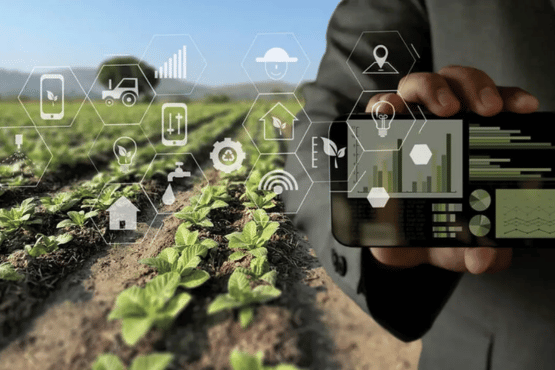Your Trusted
Agri-Tech Partner

Agri Super Private Limited is a next-generation Agri-Tech company dedicated to revolutionizing agriculture through smart, sustainable, and scalable solutions. Headquartered in Ranchi, Jharkhand, Agri Super is driven by a single mission: to empower farmers with data, knowledge, and eco-friendly technologies that enhance productivity while restoring soil health and environmental balance.
Founded by agricultural expert, Agri Super brings together a team of agronomists, engineers, and grassroots professionals. The company is supported by ICAR-IARI Pusa Krishi and its technology is verified by IIT(ISM) Dhanbad, making it a trusted name in agri innovation.
Our Core Innovations
Real Time Soil Health Check up on Field
A patent-pending, app-integrated tool that gives farmers on-the-spot results for key soil parameters—pH, EC, Nitrogen, Phosphorus, Potassium, temperature, moisture, and GPS location.
AGRI SUPER Mobile App
A powerful platform connects farmers to real-time soil data, crop-specific recommendations, pest diagnosis, and expert support.
Real time soil health check up with IoT (Internet of Things) can be a powerful tool for farmers and gardeners to optimize their crop yield, reduce water usage, and minimize the use of fertilizers and other chemicals. Here are some reasons why real time soil health check up with tech is important:
- Accurate and Real-Time Data
- Cost effective
- Environmentally Friendly
- Customized Recommendations
Eco-Friendly Agri Inputs
Under the AGRI SUPER brand, we promote high-quality bio-fertilizers, bio-fungicides, and bio-insecticides, including PSB, KSB, Mycorrhiza, NPK Consortia, and more—ensuring sustainable and residue-free farming.
What Makes Agri Super Unique?
Integrated Technology + Field Expertise
A rare combination of hardware, software, and agronomy solutions customized to local farm needs. Supporting FPO formation, farmer training, and land reclamation projects impacting lives at scale.
Scalable Franchise Model – Agri Super Kendra
We’re building a network of block-level diagnostic and retail hubs powered by trained local entrepreneurs.
